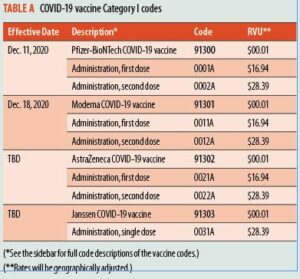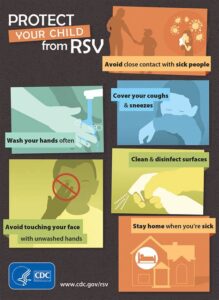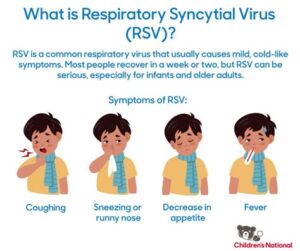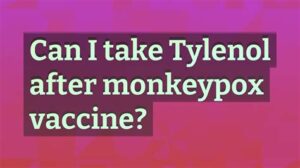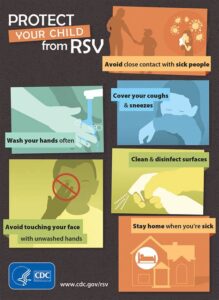Explore the impact of Respiratory Syncytial Virus (RSV), vaccine effectiveness, risks, preventive measures, and the importance of vaccination for high-risk groups.As respiratory syncytial virus (RSV) continues to pose a significant health threat, especially among vulnerable populations, many are left wondering about the effectiveness of available vaccines. While vaccination is a critical tool in preventing severe illness, it’s important to understand that breakthrough infections can still occur. In this blog post, we will explore RSV, the effectiveness of vaccines in reducing the severity of infections, and the risks involved for those who are vaccinated. Additionally, we’ll discuss preventive measures that can help mitigate the risk of RSV even among vaccinated individuals, emphasizing the importance of vaccination in high-risk groups. Join us as we delve into the complexities of RSV vaccination and its role in public health.
Understanding Respiratory Syncytial Virus (RSV)
Respiratory Syncytial Virus (RSV) is a highly contagious virus that primarily affects the respiratory tract. It is one of the most common causes of respiratory infections in infants and young children. RSV infections can also occur in adults, particularly in those with compromised immune systems, the elderly, and individuals with pre-existing lung conditions.
RSV spreads through respiratory droplets when an infected person coughs or sneezes. It can also survive on surfaces, making it easy to contract if proper hygiene measures are not followed. Symptoms of RSV infection vary and can range from mild cold-like symptoms to severe respiratory distress and pneumonia.
The impact of RSV on public health is significant. During widespread outbreaks, hospitals often see a surge in cases, overwhelming health systems. Understanding how to mitigate the risks associated with RSV is essential, especially in vulnerable populations.
| Fact | Description |
|---|---|
| Transmission | Through respiratory droplets and contaminated surfaces. |
| Symptoms | Cough, runny nose, wheezing, and fever. |
| High-Risk Groups | Infants, elderly, and those with weakened immune systems. |
In summary, while most healthy individuals recover from RSV with symptomatic treatment, those in high-risk categories require more vigilant monitoring and intervention. Understanding the basics of RSV is crucial for prevention and management, especially in the face of potential outbreaks.
Effectiveness of Vaccines Against RSV
Respiratory Syncytial Virus (RSV) is a significant viral infection that primarily affects infants and young children, but it can also impact older adults and those with weakened immune systems. Understanding the effectiveness of vaccines against RSV is crucial, especially in the wake of recent developments in vaccine research and public health guidelines.
Recent studies have demonstrated that RSV vaccines can significantly reduce the severity of the disease in vaccinated individuals. For example, clinical trials have shown that certain RSV vaccines can lower the risk of hospitalization due to severe illness caused by the virus. The data suggests that among high-risk populations, such as infants born prematurely or with certain medical conditions, the benefit of vaccination is particularly pronounced.
While no vaccine offers 100% protection against infection, the available RSV vaccines have shown a promising ability to mitigate the symptoms and complications of the virus. In vaccinated individuals who do contract RSV, the symptoms tend to be less severe, leading to a lower likelihood of hospitalization and associated healthcare costs. Moreover, ongoing research continues to improve the formula and efficacy of these v
Risk of RSV Infection in Vaccinated Individuals
As the prevalence of Respiratory Syncytial Virus (RSV) continues to rise globally, many individuals are turning to vaccination as a preventive measure. However, it is important to understand that while vaccines are highly effective, no vaccine offers 100% protection. This leads to the question: can vaccinated individuals still contract RSV?
Despite being vaccinated, individuals may still be at risk for RSV infection, especially those in high-risk categories. Vaccines work by enhancing the body’s immune response, but factors such as waning immunity, emerging variants of the virus, and the individual’s overall health can influence the effectiveness of the vaccine. This means that although vaccination significantly reduces the severity of the disease, it does not completely eliminate the risk of infection.
For certain demographics, such as infants, the elderly, and individuals with weakened immune systems, the consequences of contracting RSV can be particularly severe. Therefore, even vaccinated individuals should remain vigilant and adopt preventive measures to minimize exposure to the virus. Understanding the limitations of vaccination, coupled with awareness of personal risk factors, is crucial in navigating the ongoing threat of RSV.
Preventive Measures for RSV in Vaccinated People
While the introduction of vaccines has significantly reduced the incidence of Respiratory Syncytial Virus (RSV), it is still important to take preventive measures, especially for those who have received the vaccine. Vaccination does not guarantee complete immunity, and individuals can still potentially contract the virus.
- Hand Hygiene: Regularly washing hands with soap and water or using hand sanitizers is crucial to prevent the spread of RSV and other respiratory viruses.
- Avoiding Crowded Places: During RSV season, it is advisable to minimize exposure to crowded environments where the virus can easily spread.
- Using Face Masks: Wearing face masks, particularly in public spaces or during high-risk periods, can help reduce the transmission of infectious agents, including RSV.
- Monitoring Symptoms: Staying vigilant for early signs of RSV infection, such as cough, wheezing, and difficulty breathing, can lead to prompt treatment and reduce complications.
It’s important to communicate with healthcare professionals about any persistent symptoms following vaccination. They can provide guidance on further *preventive actions* and whether additional treatments may be necessary. Implementing these measures can help keep you and your community safe, even if you have been vaccinated against RSV.
Remember that while vaccination is a key tool in the fight against RSV, it is only part of a comprehensive strategy. Adopting a proactive approach to personal he
Importance of RSV Vaccination in High-Risk Groups
Respiratory Syncytial Virus (RSV) poses a significant health risk, particularly in high-risk groups such as infants, the elderly, and individuals with underlying health conditions. Vaccination plays a crucial role in mitigating the impact of this virus within these vulnerable populations.
One of the primary reasons for promoting RSV vaccination in high-risk groups is to prevent severe illness and hospitalizations. Studies have shown that vaccinated individuals are less likely to experience severe symptoms associated with RSV, including bronchiolitis and pneumonia. As such, vaccination can lead to fewer emergency room visits and a reduced burden on healthcare systems.
Moreover, achieving high vaccination rates within these groups not only protects the individuals themselves but also contributes to community immunity. When high-risk individuals are vaccinated, the overall incidence of RSV can decrease, thus protecting those who are unable to receive the vaccine due to allergies or other medical restrictions. Therefore, emphasizing the importance of RSV vaccination in high-risk groups is a vital public health strategy.
Frequently Asked Questions
What is RSV and why is it a concern?
RSV, or respiratory syncytial virus, is a common virus that causes respiratory infections, particularly in infants and older adults. It can lead to serious conditions such as bronchiolitis and pneumonia.
Can vaccinated individuals still contract RSV?
Yes, vaccinated individuals can still contract RSV, although vaccination may reduce the severity of the illness and associated complications.
How effective are RSV vaccines in preventing the virus?
Current RSV vaccines have been shown to be effective in reducing the risk of severe illness and hospitalization, but they do not guarantee 100% immunity.
What groups are most vulnerable to RSV despite vaccination?
Infants, young children, and elderly individuals with weakened immune systems remain the most vulnerable to RSV infections, even if they have been vaccinated.
Are there any additional preventive measures for RSV?
In addition to vaccination, practicing good hygiene, such as frequent handwashing and avoiding close contact with infected individuals, can help prevent RSV transmission.
What are the symptoms of RSV?
Symptoms of RSV can include runny nose, coughing, wheezing, fever, and difficulty breathing. Severe cases may require medical attention.
What should I do if I suspect RSV infection?
If you suspect an RSV infection, especially in vulnerable populations, it is important to contact a healthcare provider for guidance on treatment and management.
